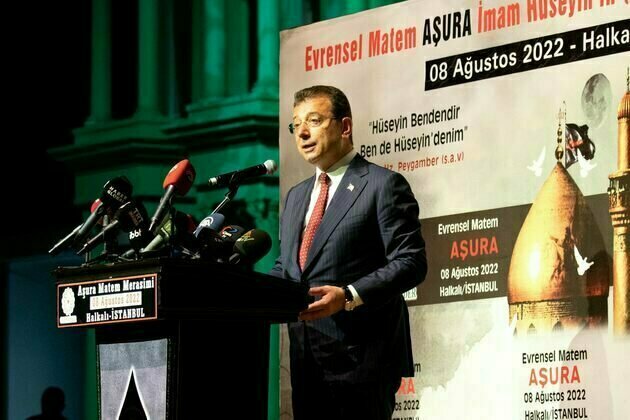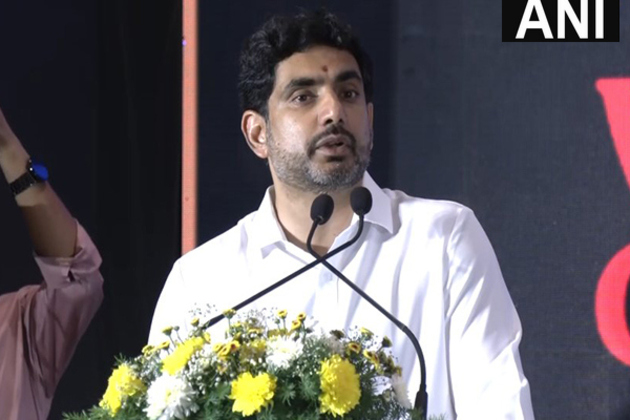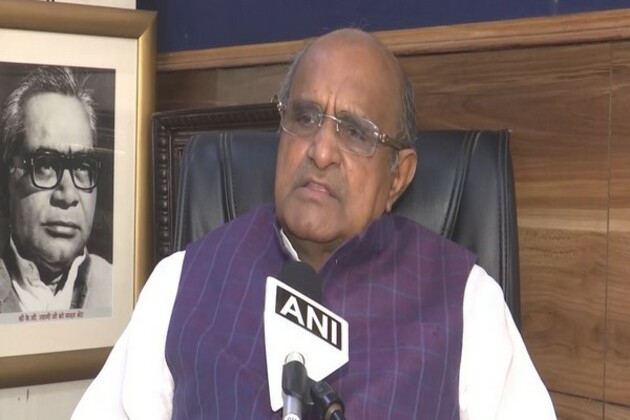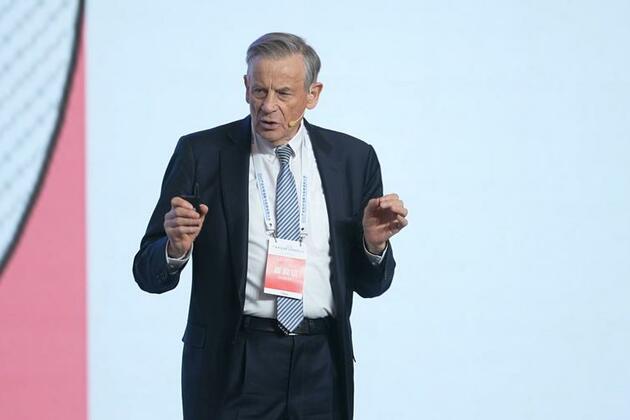Turkey democracy crisis: where religion, power and repression intersect
The Conversation
31 Mar 2025, 16:25 GMT+10

The arrest of Istanbul's mayor, Ekrem mamolu, on 19 March has put a spotlight on the state of democracy in Turkey. It marks a possible turning point in the gradual dismantling of the country's secular and democratic pillars.
At its founding in 1923, the Republic of Turkey was established as a secular state under the leadership of Mustafa Kemal Atatrk. Secularism was seen as essential to modern development, as it decoupled state power structures from religious authorities.
However, recent studies demonstrate that this separation has become weaker since the Justice and Development Party (AKP) came to power in 2002.
Turkish politics researcher Jenny White notes that, under the AKP, Islam has moved from occupying a private space to becoming a tool of political legitimacy under the AKP. In her 2014 book Muslim Nationalism and the New Turks, she explores how the AKP has promoted a national-religious identity as an alternative to traditional republican secularism.
This transformation of secularism in Turkey has also been accompanied by an overhaul of national identity. According to a study by the Brookings Institution, Erdoan's government has promoted a religious and conservative vision of what it means to be Turkish. This has weakened the republican pillars on which the country was founded over a century ago.
Rather than occupying a private or spiritual space, Islam has been increasingly integrated into the official state narrative as a tool of political cohesion and moral legitimacy. This redefinition has had clear consequences: reduced scope for dissent, curtailed individual freedoms, and the spread of a cultural, religious identity that excludes significant parts of society.
Authors llike Steven Levitsky and Lucan Way developed the term "competitive authoritarianism" to describe a regime in which democratic institutions formally exist, but are hollowed out by hegemonic government control.
In Turkey's case, various practices that contribute to unfair electoral competition have been documented. These include co-opting the judiciary, controlling the media and disqualifying opposition candidates.
mamolu's arrest on charges of corruption and alleged links to terrorism fits this pattern. He had emerged as a viable challenger to AKP hegemony after winning the 2019 and 2024 mayoral elections in Istanbul, a city with high symbolic and political value. International analysts are interpreting his arrest as a move to exclude him from national elections.
In recent years, Turkey has seen repeated use of judicial proceedings to exclude political opposition. According to Freedom House's 2024 report, Turkey is classified as "not free", with declining scores on judicial independence and civil liberties. The detention of more than a thousand people following mamolu's arrest, including journalists and protesters, has been denounced by organisations such as Human Rights Watch and Reporters Without Borders.
In this context, the application of the law is transformed into a tool of control. Guillermo O'Donnell called this "bureaucratic authoritarianism": a selective use of legality to maintain institutional forms while eliminating their democratic functions.
The Turkish-born economist and Nobel laureate Daron Acemoglu has argued extensively that democratic decline is directly linked to weak institutions and the lack of checks on executive power. In his 2013 book Why Nations Fail, he argues that inclusive institutions are key to development and stability, while those captured by extractive elites tend to result in authoritarian or inefficient regimes.
The current situation in Turkey - where control over the judiciary, the media and the electoral system has been progressively centralised by the executive - illustrates the consequences of this institutional capture.
Turkey is a case study for understanding the transformation of 21st century democratic regimes. In their 2019 book How Democracies Die, Steven Levitsky and Daniel Ziblatt warn that contemporary democracies are not usually brought down by coups d'etat. Instead, they are unpicked by a progressive erosion of institutional checks and balances from within the system itself.
Events in Turkey show how leaders can weaken secularism, concentrate power and criminalise the opposition within a political model that still retains a democratic facade. This "normalisation" of a shift towards autocracy should be a warning to other vulnerable democracies.
Ekrem mamolu's arrest is a key episode in a structural process of the Turkish political system's transformation. Viewed through the theories of competitive authoritarianism, democratic regression and political secularism, it is clear that this is not an isolated episode of repression. It signals a profound ideological drift, one that threatens the essence of the modern Turkish republic founded more than a century ago.
This article was originally published in Spanish
 Share
Share
 Tweet
Tweet
 Share
Share
 Flip
Flip
 Email
Email
Watch latest videos
Subscribe and Follow
Get a daily dose of Greek Herald news through our daily email, its complimentary and keeps you fully up to date with world and business news as well.
News RELEASES
Publish news of your business, community or sports group, personnel appointments, major event and more by submitting a news release to Greek Herald.
More InformationInternational Business
SectionTo meet US AI energy surge, Schneider Electric invests $700 million
ANDOVER, Massachusetts: As artificial intelligence drives up energy demand across the United States, Schneider Electric is making a...
US boosts egg imports from Brazil amid bird flu spread
WASHINGTON, D.C.: In response to soaring egg prices and supply shortages driven by a devastating bird flu outbreak, the United States...
NASA astronauts Williams, Wilmore thank Musk and Trump, share reactions to delayed return from space
Washington, DC [US], March 31 (ANI): Days after returning to Earth following their nine-month-long stay on the International Space...
We are building Amaravati in three years, will create 5 lakh jobs around Visakhapatnam: Nara Lokesh
Visakhapatnam (Andhra Pradesh) [India], March 31 (ANI): Andhra Pradesh IT and HRD Minister Nara Lokesh stated that Amaravati would...
Elections will be held under leadership of Nitish Kumar, he would become CM: KC Tyagi
New Delhi [India], March 31 (ANI): Following the National Democratic Alliance (NDA) meeting held at the residence of Bihar Chief Minister...
Innovative China shares new opportunities with world: German economist
Hermann Simon, a renowned German economist, delivers a speech at the 2025 Industrial Technology Innovation and Investment Promotion...
Mediterranean
SectionSteve Phelps named NASCAR's first commissioner
(Photo credit: Mark J. Rebilas-Imagn Images) Steve Phelps was named NASCAR's first commissioner on Monday with a mission focused...
Spain: 5 killed, 4 injured in coal mine explosion in Degana
Madrid [Spain], March 31 (ANI): Five people were killed and four others injured in an explosion at a coal mine in northern Spain on...
Is a Russia-US Nord Stream revival really possible
While still hypothetical, a Moscow-Washington deal to restore the gas pipeline would reshape energy diplomacy and bring new challenges...
Trump to modernize US nuclear arsenal energy secretary
The American deterrent is aging and some warheads are in need of replacement, Chris Wright has said The administration of President...
Turkey democracy crisis: where religion, power and repression intersect
The arrest of Istanbul's mayor, Ekrem mamolu, on 19 March has put a spotlight on the state of democracy in Turkey. It marks a possible...
Israeli PM Netanyahu appoints new Shin Bet chief despite injunction
Tel Aviv [Israel], March 31 (ANI/TPS): Despite a temporary injunction against the dismissal of Israel Security Agency (Shin Bet) chief...












